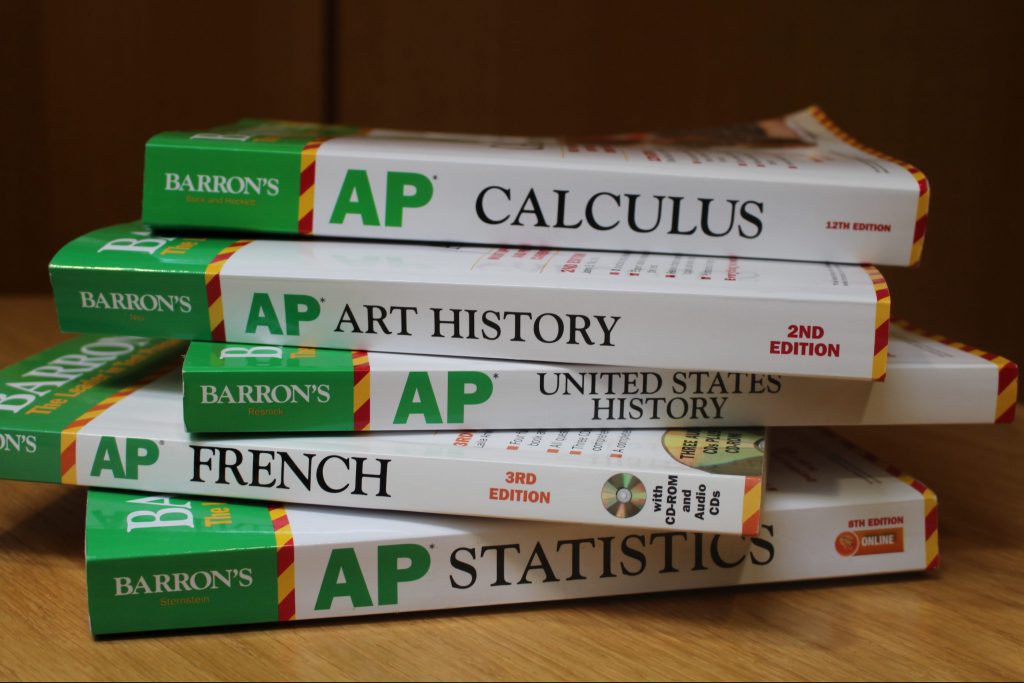It is that time of year again, and no, we do not mean springtime. It has come back to haunt us all, AP season. The delightful time when sophomores are confused about APUSH, the junior class is collectively having a breakdown, seniors are sitting pretty picking and choosing which exams to take, and freshmen are living in total bliss away from the rowed desks of the dark and dusty C-gym. Whether it is the first year or the last, AP season somehow never gets less terrifying. But students are not alone in this; teachers are just as stressed, somehow managing to fit a century and a half of history into two weeks or introducing four new verb tenses or an entirely new form of electricity transfer. At least there’s a sense of solidarity.
In managing AP stress, contextualization is important—pun intended. Here are some key test-day reminders: no test can take more than three hours and fifteen minutes, no one can take more than two tests in one day, and there is a break included in every exam. Preparedness is preferable, but even if there was not enough time or one class got pushed to the backburner over another, that is hardly a crisis situation. In the words of seasoned AP student Angela Yang, “A bad score isn’t the end of the world. Of course, a good score is ideal but you get to choose which scores to send to colleges.” That is exactly it. Students still maintain autonomy and choice; the College Board may seem like a future-wielding overlord, but they are not. At the end of the day, a future employer is never going to ask whether or not you passed your AP US History exam. Teachers are also looking out for their students: AP World History teacher Ms. Kosch believes that “the course has been designed to help prepare you for the exam all year long, so you should feel confident going into the exam.” Whether it feels like it or not, everything that is on the exam has been taught throughout the year. Take a breath.
Final exams are scientifically correlated with increased stress, but we did not have to tell anyone that. In a British study, the main sources of final exam stress “were seen to be work overload, revision difficulties, and uncertainty about examination content and the future”.¹ That last part is more significant than some let on. Uncertainty tends to be a driving factor in the tornado that wreaks havoc from late-March to mid-May, also known as AP season. Wondering what is on the exam is a dizzying mystery that some may equate to a labyrinth. However, the College Board is not hiding anything about format or content. The College Board Exam and Course Description can be found for any AP course and contains everything a student may need to study in order to pass their exams in May. AP exams are also significantly more skills-based than content-based, so test-taking stamina and comprehension of rubrics and format will help far more than attempting to memorize every minute detail. At the same time, bombing an FRQ is not the end of an academic career.
Time to get personal. If this is your first AP exam, do not sweat it! If this is your last, I applaud your dedication and perseverance over the past three years. And juniors, well, you will figure it out; at least you know that the majority of you are in the same position and can make it through May 12th. Make sure to take care of yourself during these troubling times. Your mental health is far more important than a one-through-five single-digit number. All of this is to say, close your textbooks by 10:00 PM and get some sleep.
¹ John A. Sloboda,”Combating Examination Stress among University Students: Action Research in an Institutional Context” Taylor and Francis Online, British Journal of Guidance and Counseling

